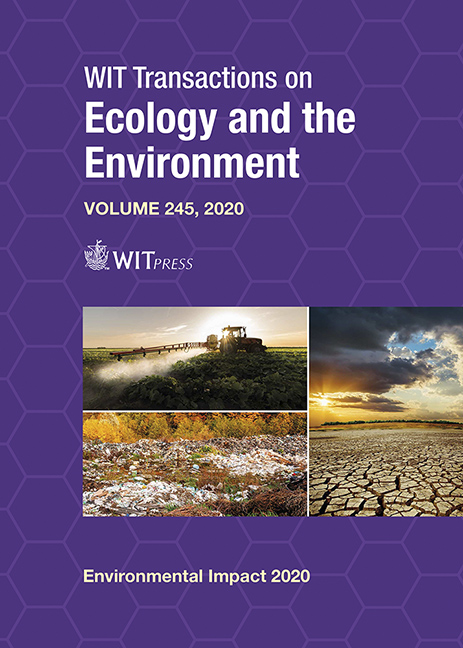ROLE OF TREES IN MITIGATING URBAN HEAT ISLAND IN CHARLOTTE, NORTH CAROLINA, USA
Price
Free (open access)
Transaction
Volume
245
Pages
11
Page Range
73 - 83
Published
2020
Paper DOI
10.2495/EID200081
Copyright
WIT Press
Author(s)
VERONICA E. WESTENDORFF
Abstract
Urban Heat Island (UHI) is a complex phenomenon experienced by cities around the globe, resulting in increased heat retained by dark, often impervious surfaces which gain and hold heat during the day and slowly release heat over the nighttime. The result is higher nighttime surface temperatures which start the city at higher temperatures the following morning. These increased night-time temperatures affect plant growth, agriculture, habitat, animal life and even human health and well-being. As daily temperatures rise worldwide, this effect has been increasing, although the factors which can impact the intensity of UHI are not well understood. Managing UHI plays an important role in the future success of sustainable cities. Trees provide moderation of UHI as well as many other benefits to human health and climate change management and, as a result, can be part of the plans for policy development that will influence the future design of our cities. Urban green spaces can help reduce the UHI effect and impact social equity by reducing energy costs, improving human living conditions, providing food and habitat to wildlife and improving aesthetics and land values.
Keywords
Urban Heat Island, Green Infrastructure, ecosystem services, sustainability, urban planning, policy, urban green spaces, social costs, social benefits, social equity





